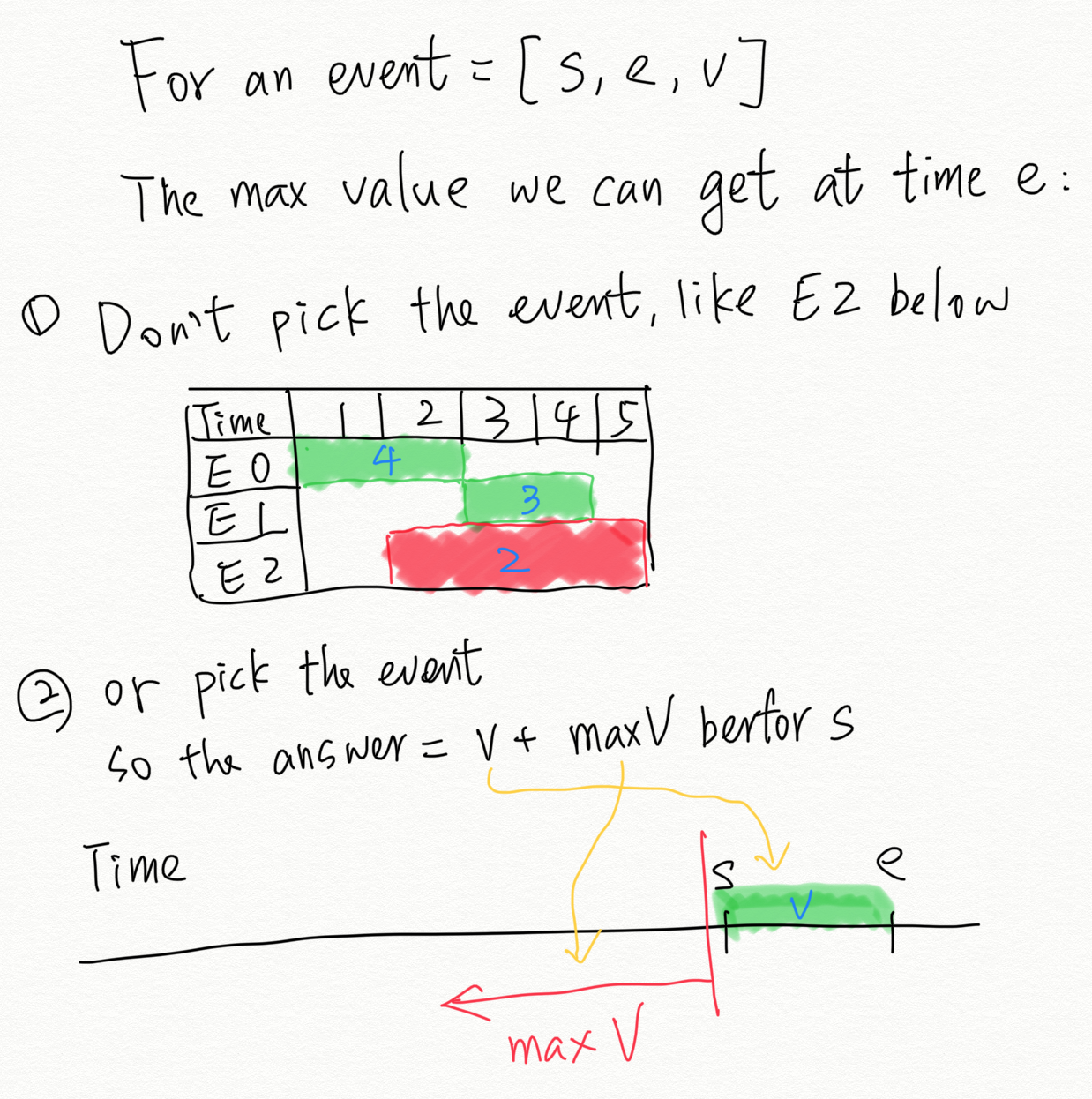Editorial: LeetCode 1751 Maximum Number of Events That Can Be Attended II

https://leetcode.com/problems/maximum-number-of-events-that-can-be-attended-ii/ from general electric
Thinking process:
Just think about the brute force way first. Since we can attend at most k events, for any given event ended at time e, the maximum value we can get at time e is: either
- the maximum value we can get if we don’t attend this event
- or the value of this event plus the maximum value we can get before time
s(the start time of the event) and the number of events we attend before timesmust be less thank.

Then we check the constraint. k * events.length <= 10^6 means we can iterate through events and check if we attend 1 event, 2 events, …, k events already and get the answer and still won’t get a TLE.
This leads us to a dp solution. We can use a map to represent the maximum value we can get (value of the map) at time e (key of the map). We do this k times. In each time, mp means we already attend at most j events, and newMp means we at most attend j+1 events.

We sort the events according to the end time first to make sure we calculate the earlier event first. Finally, we set newMp[end] to the max of newMp.rbegin()->second and it->second + value. The newMp.rbegin()->second is the “don’t attend this event” case we talk above.
Here is the code.
1class Solution {
2public:
3 int maxValue(vector<vector<int>>& events, int k) {
4 int N = events.size();
5 sort(events.begin(), events.end(), [](const auto& e1, const auto& e2) {
6 return e1[1] < e2[1];
7 });
8 map<int, int> mp;
9 mp[0] = 0;
10 for (int j=0; j<k; j++) {
11 map<int, int> newMp;
12 newMp[0] = 0;
13 for (int i=0; i<N; i++) {
14 auto& e = events[i];
15 int start = e[0], end = e[1], value = e[2];
16 auto it = mp.upper_bound(start-1);
17 it--;
18 newMp[end] = max(newMp.rbegin()->second, it->second + value);
19 }
20 mp = newMp;
21 }
22 return mp.rbegin()->second;
23 }
24};